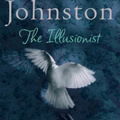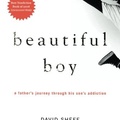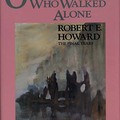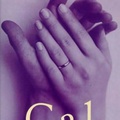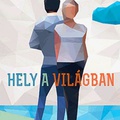J. G. Ballard: Crash

Since I had seen the movie version of Crash (directed by David Cronenberg) a couple of years ago, I have been planning to read the novel. Judging from the movie, I could imagine what the book might be like, and anyway, usually I am not the one to complain about the disgusting elements of any novel, but I still have to admit that I find Crash to be quite morbid and transgressive.
One day the narrator of the story, James Ballard crashes into the car of Dr. Helen Remington. Helen's husband dies in the accident, while Helen and James suffer serious injuries. Surprisingly, however, the accident gives a new direction to James's sexuality when he discovers that the experience of the crash and the sight of wounds and permanent scars become irresistibly exciting for him – and it quickly turns out that he is not alone with this perversion. After the accident James gets to know Vaughan, a man who is constantly taking pictures at the sites of crashes, and in whose distorted mind nothing lives except for the images of accidents, dead bodies, sex, violence and the wounds one might get in a car crash. It turns out that Vaughan is the head of a small but thriving community the members of which had all been through at least one crash – and since then, they are continuously looking forward to other crashes and to the sexual pleasure they can derive from them.
I guess it is clear from the previous paragraph that the characters of the novel have pretty unsound imaginations, and they can only find pleasure in their empty and sterile lives by engaging in more and more violent actions and by courting danger and disaster. On the other hand, however, the sickly deeds and desires of the characters stem directly and almost naturally from the space they inhabit: the story is set in West-London, in a futuristic apartment complex, and on the multi-lane roads and in the multi-storey carparks which surround it, and in the background of the events we are always aware of the constant stir of a million of cars, the traffic jams and the aircraft departing from and landing on the airport nearby. The novel is thus set is an extremely impersonal world, one which is endlessly fascinated by modern technology and speed, and it is quite natural that this world plants insane desires into people: if so many people spend a significant part of their days in their cars, and if so many people die in car crashes, then it only seems logical that the setting for sexual satisfaction and the most intimate human relationships should also be the car, and that these relationships should be infused by the sense of danger and speed conveyed by motorcars.
Of course the world of Crash can be quite disgusting at times, but the reader is constantly aware that what he sees is not reality, but a highly stylized fantasy world. It is stated several times in the novel that the sexual and other acts committed by the characters are „only” the ritualistic substitues for real car crashes, and this alienated me from the characters to the point that I was not disgusted by them, but I did not pity them either. They behave in a highly unlifelike, inhuman way and this prevents me from feeling any human emotion towards them.
In this respect it was very intriguing that the most unsettling scene for me (and for the characters of the novel as well) was not the depiction of an actual crash or some bizarre sexual practice, but the chapter in which the characters watch a crash test. During the expertly planned test a motorcyclist crashes into a car in which a family of four is travelling. After the test, the characters watch the video footage of the event, and we get a vivid description of the injuries suffered by the crash test dummies. And even though the description concerns dummies and not real people, this scene seems much more tragic and real than any of the novel's scenes of real crashes. This is observed by the narrator as well, and he remarks that the test is realer than reality for every spectator because everyone imagines themselves to be in the places of the dummies.
Besides the many unsavoury and brutal scenes the tone of the novel is frighteningly apocaliptic, and the obsessive way of thinking of the sick mind is also expertly (and appallingly) shown: for instance we hear much more than enough about Vaughan's scars (which become increasingly attractive for the narrator); and it is also stated at least a dozen times that the crash is seen by the characters as the symbol of the marriage of eroticism and modern technology. If the whole novel were not so morbid, perhaps I would even say that Ballard is being didactic when he wants to hammer home his ideas with so many repetitions – I do not usually like novels which repeat their key sentences or symbols with such insistence. But in Crash I feel that the constant repetitions are the direct consequences of the distorted imaginations of the narrator and mostly Vaughan: since their lives are mostly shaped by their bizarre sexuality, it seems natural that they keep repeating themselves and telling us over and over again what is most important for them.
Naturally, reading all this is not a pleasant experience, but I guess it was not meant to be one. And of course the unpleasantness does not change the fact that Crash is an impressive, frightening and very modern novel.

